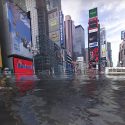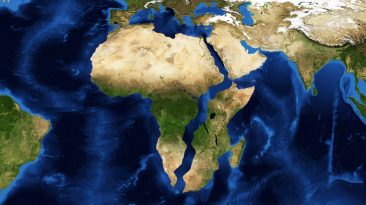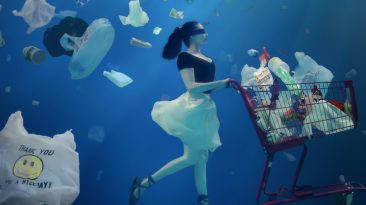How many sea animals would face extinction? Could the corals rebuild themselves from scratch? How would this massive die-off affect humanity?
Corals are not rocks. They are huge colonies of a distant relative of the jellyfish – coral polyps. And like all living things, they die.
The warmer our oceans get, the faster coral reefs die out. It only takes a water temperature spike of 1°C (1.8°F) above average to upset corals and make them turn white. This process is called bleaching. It makes corals more vulnerable to hot temperatures, and causes their death if the water doesn’t cool down.
Climate change has already killed half of the Great Barrier Reef’s coral in just two years. You can now see them bleaching from vibrant colors to bland and lifeless ones. It’s only a matter of time until the last coral vanishes from the oceans.
But what if an abrupt heatwave destroyed all of the reefs overnight? Coral reefs take up just 1% of the world’s marine environment. So, no big deal, right? Wrong. Just that 1% is enough to sustain a quarter of all marine animals in the ocean. Two million species live in, on, and around the reefs. For them, corals have been providing food and shelter for 50 million years.
The day the reefs disappeared, marine biodiversity would suffer huge losses. The ocean bottom would be taken over by forests of seaweed. Maybe it’s time to give jellyfish soup a try, since there would be plenty of them in the ocean.
But for many unique species of fish in the ocean, corals are their only safe habitat. A lot of them would be lost for good. Same goes for sea turtles.
Since coral are filter feeders, they clean the water. Remaining species, including dolphins, would be left to survive in very murky waters. They might soon disappear as well, since when the corals disappear, there would be very little fish for them to feed on.
What about us? Would humans on land be affected too? Absolutely. Since reefs support fish, they also support the fisheries, feeding and giving jobs to 500 million people in tropical countries like Indonesia, Malaysia and the Philippines.
Of course, the local tourism industries would crash. No one wants to dive into a forest of seaweed. With no corals left, coastal countries would lose $375 billion of annual income.
Coastlines would no longer be protected from flooding in extreme storms. Coral provides a natural breakwater, and a buffer against erosion. Without it, water would push local residents out of their homes.
As the ocean spread out, the residents of these densely populated islands would have nowhere to go. The countries might vanish from the planet together with the reefs. Without seafood there would be increased pressure on farms to make up for the shortfall in protein. This might turn into a global food crisis.
It’s hard to predict what else the disruption to the food chain and biodiversity of the oceans would lead to. Sure enough, that wouldn’t be pretty.
The truth is, this hypothetical scenario is getting very real. The corals of the Great Barrier Reef are bleaching quickly and are unlikely to recover. Can humans help their survival? Well, we aren’t able to regrow 500-year-old corals in just 15 years. But we can at least try to pollute our air and oceans less. That way, the coral reefs might be around to give enjoyment, and life to future generations of fish – and humans!
The next time you’re looking for a place to go on vacation, think about the impact you’re making and try to support local communities that protect the oceans and ecosystems they depend on. And if you must go diving or snorkeling, don’t stand on corals. Always marvel at the incredible beauty from a distance.
Subscribe to What-If on Youtube or follow the show on Facebook Watch.



























